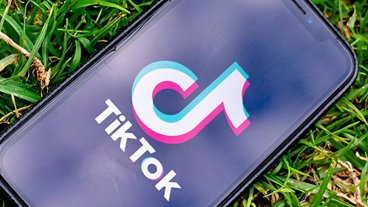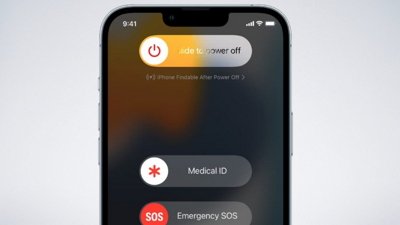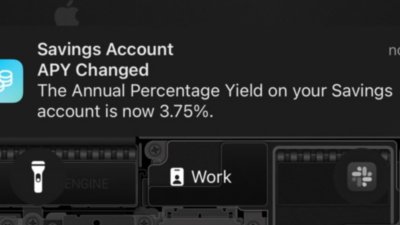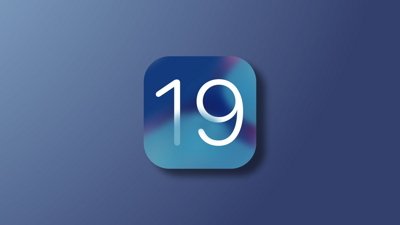Real Network's decision to allow tracks purchased from its Rhapsody music service to play on iPods through a software hack called Harmony puts it at risk to a lawsuit from Apple, the company said this week.
In developing Harmony, RealNetworks reverse engineered a way to translate tracks downloaded in its proprietary Helix DRM scheme to an equivalent of Apple's FairPlay DRM, allowing millions of iPod and iTunes users to alternatively shop at its Rhapsody music service.
"Our Harmony technology enables consumers to securely transfer purchased music to digital music devices, including certain versions of the market leading iPod line of digital music players made by Apple Computer, as well as certain devices that use Microsoft Windows Media DRM," the company said.
Real also admitted there are additional risks associated with Harmony, "including the risk that Apple will continue to modify its technology to “break†the interoperability that Harmony provides to consumers, which Apple has done in connection with the release of certain new products. If Apple chooses to continue this course of action, Harmony may no longer work with Apple’s products, which could harm our business and reputation, or we may be forced to incur additional development costs to refine Harmony to make it interoperate again."
Apple last year openly expressed its frustration with Real's Harmony hack in a public statement, saying: "We are stunned that RealNetworks has adopted the tactics and ethics of a hacker to break into the iPod, and we are investigating the implications of their actions under the DMCA and other laws. We strongly caution Real and their customers that when we update our iPod software from time to time it is highly likely that Real's Harmony technology will cease to work with current and future iPods."
In the SEC filing, Real further admits that while it believes its Harmony technology is legal, "there is no assurance that a court would agree with our position."
Real this week also said it expects to spend $16 million this year fighting Microsoft, which it sued in 2003, accusing the software giant of using its market dominance in operating systems to promote its rival Windows Media Player software.
 AppleInsider Staff
AppleInsider Staff






-m.jpg)






 Charles Martin
Charles Martin
 Wesley Hilliard
Wesley Hilliard


 Oliver Haslam
Oliver Haslam
 Marko Zivkovic
Marko Zivkovic

 Amber Neely
Amber Neely








31 Comments
Why the shit does Apple block Harmony et al!!!!????? I thought they did NOT profit on the iTMS, but the iPods, as usual, since they are a "hardware company."
isn't this almost verbatim what apple warned about when real first released harmony?
I hate Real and their shitty, shitty products, but I do think it would be good for the iPod to accept other DRM schemes like Helix and Janus. Doing that would sell more iPods because customers wouldn't have to buy a Creative/Rio player to use services like Napster, Yahoo, etc.
More iPods sold would eventually mean more tracks sold at the iTMS, anyway, since users would still be using iTunes to load their iPods.
Edit: Real's reverse-engineering of FairPlay is pretty shady, though, for a mainstream company. It's cool when it comes from the users (i.e. Hymn), but not from competitors.
Why the shit does Apple block Harmony et al!!!!????? I thought they did NOT profit on the iTMS, but the iPods, as usual, since they are a "hardware company."
Harmony is a honeypot that can also support other MP3 players. It would likely die the same death as most other legal download sites without iPod support. So if it cannot survive without iPod support, it indirectly reduces potential iPod hardware competition by making it less easy to buy legal tracks for non-iPod players.
Why the shit does Apple block Harmony et al!!!!????? I thought they did NOT profit on the iTMS, but the iPods, as usual, since they are a "hardware company."
If you follow the news and Apple's financial statements you would know that they do make a profit on iTunes sales. Not a large one, but a profit nevertheless.
Even if Apple only broke even, anything that would lessen the sales would lessen Apple's chance to do better. Apple is most likely the only company making a profit on song sales because of their volume. The others make some profit on their subscriptions but not on song sales.
It's also questionable as to whether what Real is doing is legal. The DCMA allows reverse engineering to make a product compatible, but it doesn't allow it for the purpose of circumventing a DRM. Those two things are incompatible.
Another example is that while you are allowed to make a copy of something for a backup, if you own or license it, you are not allowed to break the DRM to do it. It's already been ruled at least once that the DRM takes precedence.